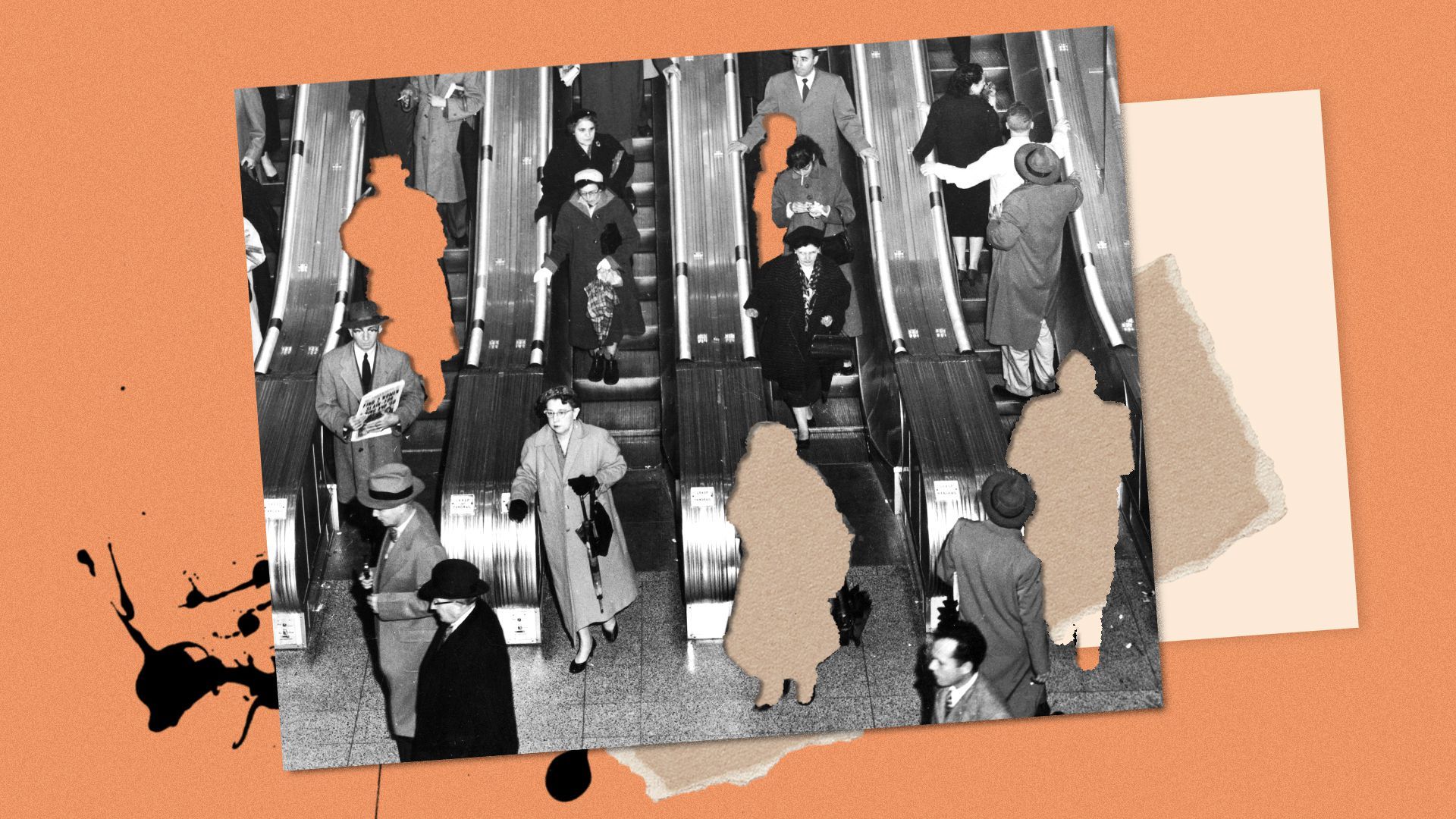Coronavirus brings a wave of early retirements
Add Axios as your preferred source to
see more of our stories on Google.

Photo illustration: Annelise Capossela/Axios. Photo by George Rinhart/Corbis via Getty Images.
The coronavirus is already triggering early retirements. That's bad news for the American economy, experts say.
Why it matters: "It’s a missed opportunity if people are being forced to retire early," London Business School's Scott says. "There's a big impact on their lifetime earnings and a big impact on lifetime expenditures. And that has macroeconomic consequences."
- Since March, 2.9 million workers between 55 and 70 have left the workforce, according to the New School's Schwartz Center for Economic Policy Analysis. That's far more than the 1.9 million such workers who exited the workforce in the three months after the start of the Great Recession.
There are four factors that are creating a "perfect storm" for early retirement, Nicholas Bloom, an economist at Stanford, tells Axios.
- The decreased demand for workers due to the recession is lowering wages.
- The uptick in layoffs means many older workers have lost jobs that they liked.
- Working might mean increasing the risk of getting infected.
- "The stock market is performing well, so defined contribution retirement funds look strong," he says.
The big picture: These early retirements will shrink the U.S. labor supply. "You have less workers and more retirees, which is bad for long-run growth," says Bloom.
- On top of that, many people may be pushed to retire early even if they aren't prepared to do so. Working until 55 if you had planned to work until 70 is a huge problem.
- Around 3.1 million older workers will fall into poverty after retirement as a result of the coronavirus recession, the Schwartz Center projects.
Some sectors will be hit harder than others by early retirements. For example, older workers are disproportionately represented in education. "I fear early retirement is going to create major shortages of teachers in certain parts of the country," Bloom says.
The other side: There are many older workers who are being pulled back into the workforce due to the coronavirus.
- There's "an urgent demand for medical and technology professionals to return to work from retirement or a career break," Carol Fishman Cohen writes in the Harvard Business Review.
- "Returning physicians and nurses, along with technologists proficient in the 'ancient' COBOL coding language that many states still use in processing unemployment claims, are helping society," she writes.
The institutional knowledge that these returning workers are bringing during the crisis is chipping away at some of the prejudices against older people — that their skills have deteriorated or become obsolete.
- "We're seeing that older workers do understand technology and can keep up," AARP's Jenkins tells Axios. "In a matter of two to three weeks, you saw this transition to a teleworking economy. And seeing older workers adapt? That gives me hope."
